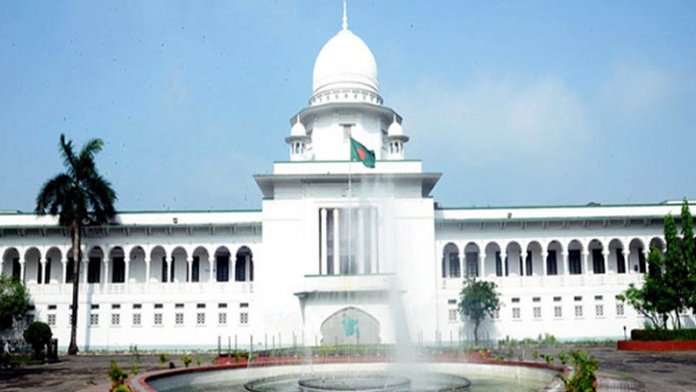Hindu widows will inherit husband property now
HC verdict gives the right

The rights of Hindu widows to both agricultural and non-agricultural lands that belonged to their late husbands have been established in Bangladesh.
The High Court in a verdict has said that the Hindu widows will get shares in all properties owned by their late husbands and not just their homesteads.
A single HC bench of Justice Miftah Uddin Choudhury delivered the verdict after finalizing a case over the issue. The full text of the verdict was released recently.
Barrister Syed Nafiul Islam, one of the lawyers in the case, confirmed the matter to the media on Tuesday (October 12).
Previously, the Hindu widows were only entitled to their spouses’ homesteads and no other assets like agricultural land. As per the verdict, the Hindu widows in the country are now entitled to inheritance rights to all the properties of their husbands according to the Hindu Women’s Rights to Property Act, 1937.
According to the verdict, properties, which were mentioned in 1937 law, means all kinds of movable or immovable properties, homesteads, agricultural land, cash money, or any other sorts of assets. There is no difference between agricultural land and homesteads.
Earlier on September 2 last year, the HC bench pronounced its short verdict after hearing on a revision petition filed by a Hindu family in Khulna.
Advocate Ujjwal Bhowmik appeared in the High Court as Amicus Curiae (friend of the court) in the case, while Advocate MA Jabbar appeared for the petitioner and Syed Nafiul Islam appeared for another side.
According to Barrister Syed Nafiul Islam, Rajbihari Mandal of Haliagram village at Batiaghata upazila in Khulna had two sons named Jyotindranath Mandal and Abhimanyu Mandal.
Among them, Abhimanyu Mandal died in 1996. After his death, the land had been recorded in the name of his wife Gouri Dasi. In this situation, Jyotindranath filed a case to the lower court, claiming that the wife of his deceased brother named Gauri Dasi would not get agricultural land, only half of the house.
The court dismissed the case in 1996 as the party was not mentioned properly. However, the court made the observation that Gauri Dasi would not get the property of the agricultural land. The lower court said that widows had the rights only to the area of the houses in which they lived, and not to agricultural property.
Jyotindranath Mandal appealed to the Khulna District Judge Court against the verdict. The court pronounced its verdict on March 7 in 2004. The verdict said that Gauri Dasi would have the rights to the homestead and agricultural land of her late husband.
The district judge, however, expressed a different opinion. that widows also had rights to agricultural land in the same manner in which their husbands had their rights.
Later, Jyotindranath and others filed the revision petition to the High Court in 2004 against the verdict. In the petition, he sought a court order to deprive his dead brother’s wife (sister-in-law) of their father’s assets.
After long hearings, the High Court delivered the verdict in favour of the Hindu women. Lawyers and human rights activists said that the verdict is a little progress for Hindu women.
The strictest part of Hindu law is the distribution of property among the women. The law enacted in 1937 deprived the women’s right to inherit their husbands’ properties. However, the widows have the need of these properties for their livelihood.
According to the lawyers, after 84 years (since 1937) Hindu widows will get their rights on their husbands’ assets following the High Court’s verdict. After this verdict, they will get a share of agricultural land too.
In the verdict, the court said that there is no specific share of property in the law. The word ‘property’ means all property were movable or immovable, homestead, real estate, agricultural land, cash, or any other type of property. There is no opportunity to differentiate between agricultural land and homestead and such property is necessary for the survival of the widow.
Advocate Ujjwal Bhowmik said that according to the Hindu Women’s Rights to Property Act, 1937, widows have the right to both their agricultural and non-agricultural lands. However, according to the earlier custom, widows were deprived of their property properly.
He said that HC verdict is an epoch-making judgment as it has removed the ambiguity of the laws regarding the rights of Hindu widows to their husbands' lands.



